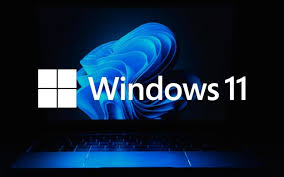Navigating the landscape of Windows 11 licenses can be somewhat overwhelming, particularly when you’re trying to choose among OEM (Original Equipment Manufacturer) and Retail keys. Both serve to activate your Windows 11 key cheap however, they differ significantly in terms of flexibility, usage rights, and price. When you’re setting up a brand new PC or updating your system, understanding these differences is crucial.
Flexibility and Usage Rights
One of the primary distinctions among OEM and Retail Windows 11 keys is their versatility and rights to use. OEM keys are generally linked to the primary PC they’re installed on. So, once you activate your Windows 11 with an OEM key, transferring it to another machine isn’t usually possible. This may be a challenge in the event that you intend to change your hardware in the near future or if your computer’s motherboard malfunctions.
On the other hand, Retail keys allow for greater flexibility. They are transferable from one PC to another as long as you uninstall the license from the previous machine. This allows Retail keys a preferred choice for those who upgrade their hardware frequently and also gives you the freedom to shift the license whenever required.
Support and Warranty
Another area that makes OEM keys and retail keys differ is the level of support and warranty provided. Typically, OEM keys are cheaper, but they come with a trade-off–limited support. Because OEM licenses are intended for companies that pre-install Windows on new computers, the responsibility for support typically falls on the hardware manufacturer. If you encounter any issues, you might not receive the support you need directly from Microsoft.
However, Retail keys provide direct support from Microsoft that can prove useful if you face problems or require assistance during installation. This extra security layer provides peace of mind and could be an important factor for users who prefer the official channels for support.
Cost Considerations
The price point is another critical factor when deciding between an OEM and a retail key in Windows 11. OEM keys tend to be cheaper, which makes them a desirable option for budget-conscious users or builders who want to save money on setting up a new PC. The benefit of this cost is however accompanied by the restrictions mentioned regarding the transferability of keys and on support.
Retail keys are, although generally more expensive, offer justifiable value through their transferability and comprehensive support. For users who prioritize the possibility of moving their licenses across multiple machines and require an official endorsement from Microsoft purchasing a Retail key could be the best long-term option.
In conclusion, choosing the right combination of OEM and Retail Windows 11 keys depends upon your individual requirements and situation. Take into consideration the flexibility, support and costs associated with each choice before making a choice. If you are aware of these differences it is possible to make a well-informed decision that aligns with your computing requirements and your future plans.
